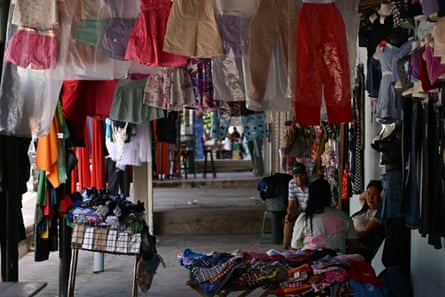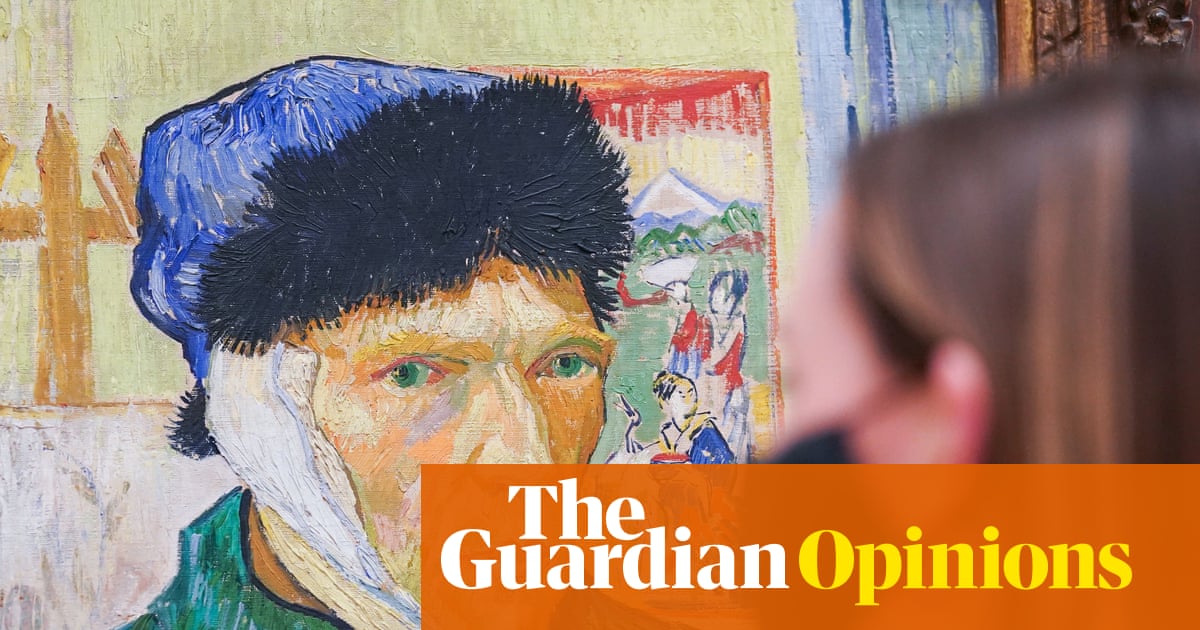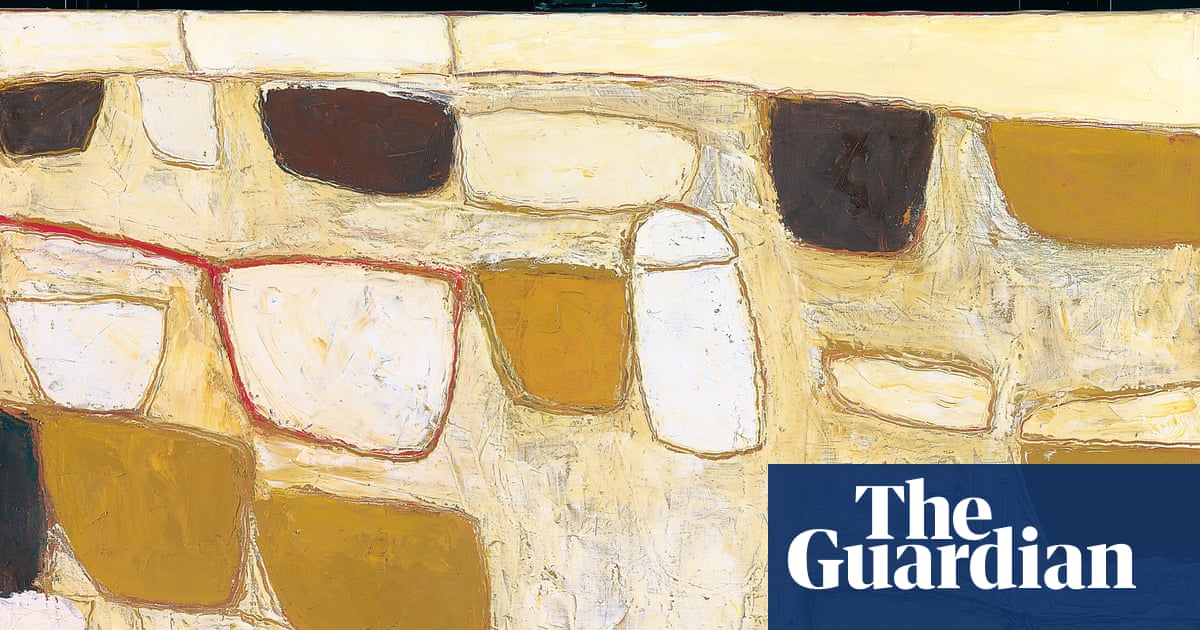The rebels would come to the brothel every day, armed and masked. They would order the women to line up on their hands and knees, put their guns in their mouths, and rape them.
“It was ugly. A place filled with women and underage girls – all of us tricked and trapped,” recalled Valeria, 21, whose name has been changed to protect her identity. “The guerrillas came like they were there to kill.”
Valeria, like the dozens of other people she was held with, was trafficked to the brothel in north-east Colombia, in autumn last year. She had been offered a job in a restaurant, but on arrival was forced into prostitution and told that if she fled she would be killed. Two of those who tried to escape were shot dead as they ran, she said, while others who protested were taken away and never seen again.
The young mother is one of more than 150 girls and women aged from 11 to 50 who have escaped what they describe as “sexual slavery” by armed groups in Catatumbo in the past year.
The Catatumbo region, near the border with Venezuela, is home to huge fields of coca, the base product in cocaine. In recent years, it has been ravaged by violence in a fight for control between two rival armed groups: the National Liberation Army (ELN), and the 33rd Front, a dissident off-shoot of the Revolutionary Armed Forces of Colombia (Farc). Rights’ groups say serious abuses have been committed by both sides, including murders, kidnappings, disappearances, child recruitment and forced labour.

“There has been a huge spike in violence in Catatumbo – homicides and displacements, increased child recruitment and very clear vengeance strategies, affecting people who are just trying to live their lives,” said Juanita Goebertus, director of the Americas division at Human Rights Watch.
Alejandra Vera, a lawyer at the feminist collective Woman, Speak Out and Move It who is supporting the women, said that the true number of victims of sexual violence is likely to be much higher. Escapees have warned that dozens, if not hundreds, more women and girls remain in captivity.
“These women are invisible. They are not seen as people, as humans – they are seen as merchandise,” she says.
Vera says some of the victims had been taken from their villages, but that most of the women travelled to Catatumbo on promises of work. Instead they were “tied up, locked up, tortured and raped”, she adds.
During the two months she spent in captivity, Valeria said, she was kept in a room with six others, was made to have sex with up to 15 men a day, and that once a week, 10 of the women were taken into the guerrillas’ jungle camps for so-called “parties”. Valeria did not want to say which faction had held her, for fear of retribution.
“The camps were horrible. We had to dance for them and they would try to humiliate us. I was punched, I was choked,” Valeria said, speaking from a safe house in nearby Cúcuta. “I was expected to have sex with anyone. I was always frightened.”
Vera says that some of the women were held permanently in the guerrilla camps, while others were prostituted in Cúcuta and taken to the mountains over the weekends. Based on interviews with her clients, she says 10 to 15 girls and women were held in each camp.
Twenty-five-year-old Emilia, whose name has also been changed, had been working as a webcam model when a friend convinced her to take on a client requesting sex work in Catatumbo. “I was told the job was only for one weekend. I ended up stuck there for three months,” she said.
Emilia was “given” to a commander, and says she was kept isolated from the other women. “I was raped and there was nothing I could do,” she said. “I said I wanted to leave, but they said I was the commander’s favourite, and that they would hunt me down if I left.”
She recalled that one young girl, whom she believes was underage, was held in a cage, where her food was thrown at her.
Her account mirrors another recorded by Vera, in which a 16-year-old escapee said that she had shared her cell in the camp with eight 10- to 13-year-olds. “They were locked up all day. She said they threw leftover food at them like animals,” she said.
Valeria managed to escape when fighting erupted in January. The ELN and 33rd Front had previously shared control of the territory in an uneasy armed co-existence, but the truce collapsed at the start of the year, and the ensuing violence displaced more than 60,000 people and left at least 117 dead.
“When the clashes began, I ran and ran. I found a new place to live, changed my phone number, changed my appearance, my hair,” she said. “They tried to find me and kept calling people that knew me. I know they are still out there, and that I have to live in hiding. I don’t feel safe.”
Colombian authorities did not respond to requests for comment, but declared a state of emergency in Catatumbo at the height of the violence, deploying security forces, mobilising government agencies to help the affected and suspending peace talks with the ELN. In a May report on the conflict, the ombudsman’s office said that 62 women had filed complaints regarding trafficking and sexual exploitation by armed groups in the region and called for greater state action.
Emilia was also able to flee in January. She has since moved repeatedly, changed her phone number and deleted all social media. “I’ve been hiding at different houses, I’m afraid that they will come back for me,” she said.
Valeria says she has not received any state support and does not trust the situation to improve. “The authorities do nothing here. They are scared of the guerillas. The government has lost control,” she said. “No woman is safe.”
Colombia, which has faced one of the world’s longest-running conflicts, is battling a nationwide surge in violence, forcing more than 130,000 people to flee, leaving hundreds dead and trapping tens of thousands in their homes this year alone.
Vera says the “state is in denial about what is happening here”.
“We’ve reported more than 450 cases of human trafficking and sexual violence since 2020. And there has been no response, no answers,” she says. “The armed conflict has normalised this violence.”

.png) 1 month ago
38
1 month ago
38

















































